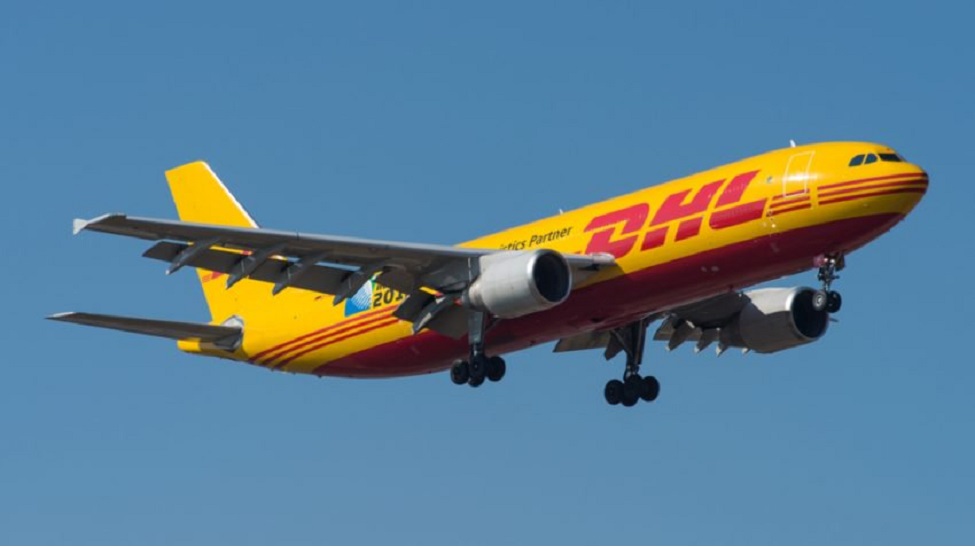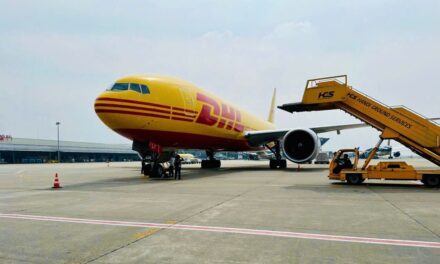
DHL Express: Even in times of worldwide shutdowns, globalization has shown its resilience

DHL Express has released a new Whitepaper “The Ultimate B2B E-commerce Guide: Tradition is out. Digital is in”. The study predicts strong growth for the B2B E‑commerce market in the coming years: by 2025, 80% of all B2B sales interactions between suppliers and professional buyers will take place in digital channels.
The impact of the Covid-19 pandemic on the pace of digitalization and the purchasing behavior of technology-savvy millennials, who are now of an age to be the professional B2B decision-makers, are the main drivers of this global E-commerce growth.
“Even in times of worldwide shutdowns, globalization has shown its resilience, fuelled by digitalization and the power of global trade”, says John Pearson, CEO of DHL Express. “These trends have led to an ever growing number of consumers to shift their shopping activities online. The pandemic has accelerated this development like never before, with a sharp rise in businesses selling their goods in the global marketplace. E-commerce and global logistics thus provided the key to unlock local shutdowns, keep economies running and mitigate the impact of Covid-19 for many of our customers.”
The Whitepaper, compiled by DHL Express, uncovers factors driving the growth of the global B2B E‑commerce market: besides general trends such as globalization and digitalization, a new technology-oriented generation of millennials is starting to make its mark. Already, millennials account for 73% of all professional B2B purchasing decisions. As digital natives, their experiences in the B2C-sector translate to high expectations when making B2B transactions, pushing companies to invest in digital solutions, such as selling platforms, while offering great growth potential.
Acceleration of E-commerce growth through Covid-19
“Specifically in Asia Pacific excluding China, we have witnessed a 17.3% year-on-year rise in shipment volume during the peak months of November and December 2020 driven by more active shippers and a 21% higher spend per customer. In those two months alone, there were 65% more B2C shipments of which consumer technology products and fashion apparel contributed the most,” said Ken Lee, CEO of DHL Express Asia Pacific. “This unabated surge in volume further underscores the growth in online shopping and demand for cross-border shipping, making it critical that logistics providers remain agile to continuously adapt and respond to consumer needs.”
It was not only B2C E-commerce that was growing due to ongoing digitalization and changed shopping behavior of consumers. In 2019, before the pandemic, global sales on B2B E-commerce sites and marketplaces had already increased by 18.2% to reach USD 12.2 trillion1, outpacing the market size of the B2C sector. Through Covid-19 and the resulting acceleration of digitalization, this global B2B E‑commerce volume is estimated to reach USD 20.9 trillion by 20272.
“The pandemic has changed the way we live. Businesses – whether big or small – have embraced digitalization at different levels,” Chee Choong Ng, Senior Vice President and Managing Director of DHL Express Hong Kong and Macau said. “However, B2C commerce remains strong, while the B2B segment is recovering quickly, as a result of a convergence of online and brick-and-mortar businesses. Air traders in Hong Kong are also optimistic about the global outlook. As the world’s leading express logistics service provider, we play a critical role as a global connector, helping customers become global businesses as they expand their reach to other parts of the world.”
What is predicted for the future of the B2B sector, has already been visible in the significant B2C E-commerce rise over the last years, where DHL Express experienced high growth rates particularly during the holiday peak seasons (e.g. Easter, Christmas) and mega shopping days (e. g. Black Friday, Cyber Monday). In total, the B2C E‑commerce volumes within the DHL Express network increased in 2020 by approximately 40%, compared to 2019.
This positive business development is also reflected in the FY2020 financial results of the company: With a total revenue of €19.1 billion (+11.9% year-on-year) and EBIT of €2.7 billion (+34.9%) the Express division of Deutsche Post DHL Group closed 2020 with the best result in its more than 50 years history. With its worldwide network and breadth of industries served, DHL Express was able to accommodate fast-changing trade flows. Furthermore, its presence in more than 220 countries and territories helped consumers and businesses to stay connected by enabling them to trade around the world – also during the Covid-19 pandemic.
DHL Express is investing to continue to meet high customer demands
In 2020, DHL Express delivered 484 million shipments in total for its customers (B2C and B2B) around the globe, around 9% more per day than in 2019. To adapt to this significant growth of its network, DHL Express continues to invest annually more than €1 billion in new state-of-the-art facilities around the world to multiply its sorting capacity (+65% since 2013), hires new employees (+10,000 year-on-year) and adds new freighter aircraft to its fleet (+20 units year-on-year). In this context, DHL Express recently announced the purchase of eight more Boeing B777 wide body freighters and a partnership with Smartlynx Malta to add two Airbus A321 to its fleet. With these measures, DHL Express ensures that its worldwide customers can benefit from the global E-commerce boom.
Acceleration of E-commerce growth through Covid-19
“Specifically in Asia Pacific excluding China, we have witnessed a 17.3% year-on-year rise in shipment volume during the peak months of November and December 2020 driven by more active shippers and a 21% higher spend per customer. In those two months alone, there were 65% more B2C shipments of which consumer technology products and fashion apparel contributed the most,” said Ken Lee, CEO of DHL Express Asia Pacific. “This unabated surge in volume further underscores the growth in online shopping and demand for cross-border shipping, making it critical that logistics providers remain agile to continuously adapt and respond to consumer needs.”












